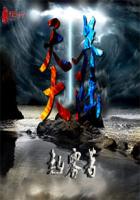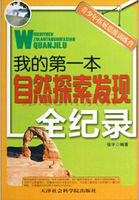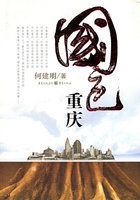"Subtract from the weight of the burnt wood the weight of the remaining ashes, and you will have the weight of the smoke." Thus he presumed it to be incontrovertible that even in fire the matter (substance) does not perish, but that only the form of it undergoes a change.In like manner was the saying: "From nothing comes nothing,"only another inference from the principle or permanence, or rather of the ever-abiding existence of the true subject in phenomena.For if that in the phenomenon which we call substance is to be the proper substratum of all determination of time, it follows that all existence in past as well as in future time, must be determinable by means of it alone.Hence we are entitled to apply the term substance to a phenomenon, only because we suppose its existence in all time, a notion which the word permanence does not fully express, as it seems rather to be referable to future time.However, the internal necessity perpetually to be, is inseparably connected with the necessity always to have been, and so the expression may stand as it is.
"Gigni de nihilo nihil; in nihilum nil posse reverti,"* are two propositions which the ancients never parted, and which people nowadays sometimes mistakenly disjoin, because they imagine that the propositions apply to objects as things in themselves, and that the former might be inimical to the dependence (even in respect of its substance also) of the world upon a supreme cause.But this apprehension is entirely needless, for the question in this case is only of phenomena in the sphere of experience, the unity of which never could be possible, if we admitted the possibility that new things (in respect of their substance) should arise.For in that case, we should lose altogether that which alone can represent the unity of time, to wit, the identity of the substratum, as that through which alone all change possesses complete and thorough unity.This permanence is, however, nothing but the manner in which we represent to ourselves the existence of things in the phenomenal world.
*[Persius, Satirae, iii.83-84."Nothing can be produced from nothing; nothing can be returned into nothing."]
The determinations of a substance, which are only particular modes of its existence, are called accidents.They are always real, because they concern the existence of substance (negations are only determinations, which express the non-existence of something in the substance).Now, if to this real in the substance we ascribe a particular existence (for example, to motion as an accident of matter), this existence is called inherence, in contradistinction to the existence of substance, which we call subsistence.But hence arise many misconceptions, and it would be a more accurate and just mode of expression to designate the accident only as the mode in which the existence of a substance is positively determined.Meanwhile, by reason of the conditions of the logical exercise of our understanding, it is impossible to avoid separating, as it were, that which in the existence of a substance is subject to change, whilst the substance remains, and regarding it in relation to that which is properly permanent and radical.On this account, this category of substance stands under the title of relation, rather because it is the condition thereof than because it contains in itself any relation.
Now, upon this notion of permanence rests the proper notion of the conception change.Origin and extinction are not changes of that which originates or becomes extinct.Change is but a mode of existence, which follows on another mode of existence of the same object; hence all that changes is permanent, and only the condition thereof changes.
Now since this mutation affects only determinations, which can have a beginning or an end, we may say, employing an expression which seems somewhat paradoxical: "Only the permanent (substance) is subject to change; the mutable suffers no change, but rather alternation, that is, when certain determinations cease, others begin."Change, when, cannot be perceived by us except in substances, and origin or extinction in an absolute sense, that does not concern merely a determination of the permanent, cannot be a possible perception, for it is this very notion of the permanent which renders possible the representation of a transition from one state into another, and from non-being to being, which, consequently, can be empirically cognized only as alternating determinations of that which is permanent.Grant that a thing absolutely begins to be; we must then have a point of time in which it was not.But how and by what can we fix and determine this point of time, unless by that which already exists? For a void time- preceding- is not an object of perception; but if we connect this beginning with objects which existed previously, and which continue to exist till the object in question in question begins to be, then the latter can only be a determination of the former as the permanent.The same holds good of the notion of extinction, for this presupposes the empirical representation of a time, in which a phenomenon no longer exists.
Substances (in the world of phenomena) are the substratum of all determinations of time.The beginning of some, and the ceasing to be of other substances, would utterly do away with the only condition of the empirical unity of time; and in that case phenomena would relate to two different times, in which, side by side, existence would pass; which is absurd.For there is only one time in which all different times must be placed, not as coexistent, but as successive.
Accordingly, permanence is a necessary condition under which alone phenomena, as things or objects, are determinable in a possible experience.But as regards the empirical criterion of this necessary permanence, and with it of the substantiality of phenomena, we shall find sufficient opportunity to speak in the sequel.
B.SECOND ANALOGY.















